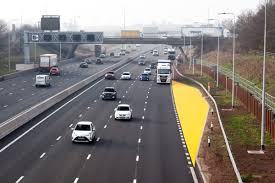Managing National Highways Road Closures for Safety and Efficiency

National Highways Road Closures: Ensuring Safety and Efficiency
When it comes to maintaining the vast network of national highways, road closures are sometimes necessary to ensure the safety of road users and facilitate essential maintenance and construction works. These closures are carefully planned and executed to minimise disruption while maximising efficiency.
Reasons for Road Closures
National highways may be closed for various reasons, including:
- Construction Works: Major infrastructure projects such as road widening, bridge repairs, or new road construction often require temporary road closures to ensure the safety of workers and the public.
- Maintenance Activities: Routine maintenance tasks like resurfacing, pothole repairs, and line painting may necessitate short-term closures to allow crews to work safely and efficiently.
- Emergency Situations: In cases of accidents, natural disasters, or other emergencies, national highways may be closed temporarily to clear debris, provide emergency services, or conduct repairs.
Planning and Communication
Road closures on national highways are meticulously planned in advance to minimise disruption and inconvenience. National highway authorities work closely with local authorities, emergency services, and other stakeholders to coordinate closure schedules and diversion routes.
Impact on Traffic Flow
While road closures can cause temporary delays and detours for motorists, they are essential for maintaining the long-term safety and functionality of our national highway network. By implementing efficient traffic management strategies such as diversion signs, variable message boards, and real-time traffic updates, authorities strive to mitigate congestion and keep traffic flowing smoothly during closures.
Your Role as a Road User
As a responsible road user, it is important to stay informed about upcoming road closures in your area. Pay attention to advance warning signs, follow diversion routes as directed by authorities, and exercise patience and caution when navigating through construction zones or detours.
In conclusion, national highways road closures play a crucial role in ensuring the safety of all road users while facilitating necessary maintenance and construction activities. By understanding the reasons behind these closures and cooperating with authorities during such events, we can all contribute to a safer and more efficient highway system.
Top 5 Tips for Navigating National Highway Road Closures
- Plan your journey in advance to avoid affected areas
- Follow official diversions and road closure signs
- Check for updates on traffic news and social media
- Allow extra time for your journey in case of delays
- Consider alternative routes if possible
Plan your journey in advance to avoid affected areas
Planning your journey in advance is a crucial tip to avoid getting caught in the disruptions caused by national highways road closures. By checking for any planned closures or construction works along your route before setting out, you can proactively choose alternative paths and ensure a smoother and more efficient travel experience. This simple step can save you time, frustration, and unnecessary detours, allowing you to reach your destination without unnecessary delays.
Follow official diversions and road closure signs
It is crucial to adhere to official diversions and road closure signs when navigating through national highways road closures. These signs are strategically placed to guide drivers safely around construction zones or blocked roads, ensuring smooth traffic flow and preventing accidents. By following these official directions, road users can help maintain order, minimise delays, and most importantly, prioritise safety for themselves and others on the road.
Check for updates on traffic news and social media
To stay informed about national highways road closures, it is advisable to regularly check for updates on traffic news websites and social media platforms. These sources often provide real-time information on road closures, diversions, and traffic conditions, allowing motorists to plan their journeys accordingly and avoid potential delays. By staying connected to these channels, road users can stay updated on the latest developments and make informed decisions while travelling on the road network.
Allow extra time for your journey in case of delays
When navigating national highways road closures, it is advisable to allocate additional time for your journey to account for potential delays. By planning ahead and allowing extra time, you can mitigate the impact of any unexpected traffic congestion or detours that may arise due to road closures. This proactive approach ensures a smoother and less stressful travel experience, enabling you to reach your destination safely and on schedule despite any temporary disruptions on the road.
Consider alternative routes if possible
When faced with national highways road closures, it is advisable to consider alternative routes if possible. By exploring different roads or diversions, motorists can potentially avoid congestion and delays, leading to a smoother and more efficient journey. Planning ahead and being open to alternative routes can help minimise disruptions caused by road closures and contribute to a safer and more stress-free driving experience for all road users.
